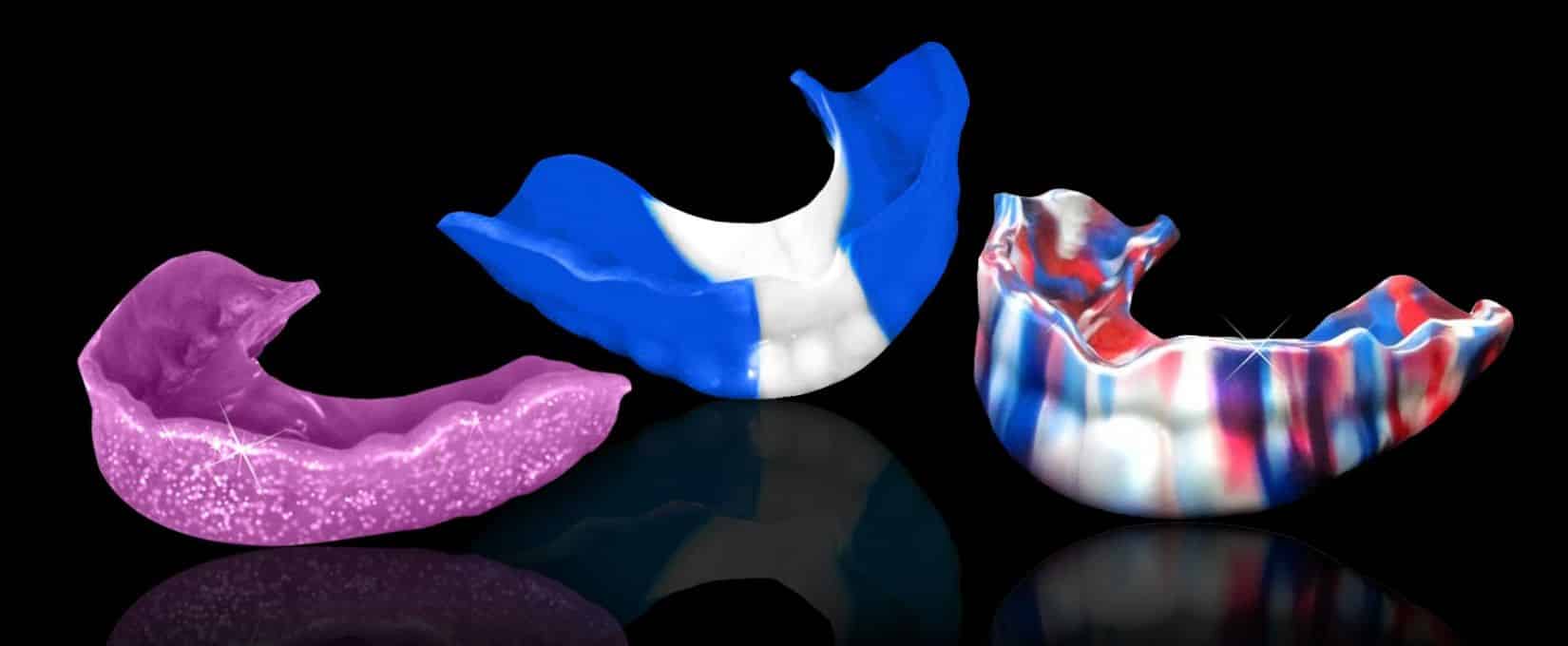
A mouthguard is worn over your upper teeth and gums and helps to cushion any serious blows to the mouth, lower face or jaw. Without them, you run the risk of fracturing, chipping or possibly even knocking a tooth out or worse still, root or jaw bone damage. Mouthguards are flexible, and usually, a custom fitted device that is typically worn while playing contact sports.
Aside from damage to our teeth, mouthguards are also useful in reducing and preventing damage to your lips, tongue and cheek lining as a result of a bump or a knock. Mouthguards can also prevent the upper and lower jaw from snapping shut due to a collision. This can safeguard against broken jaws, neck injuries and even concussion. They can also help to protect people who are orthodontics, as these may cause extra damage to the inside of the mouth and lips.
Mouthguards are not mandatory and therefore not all athletes wear them. This is usually just a personal preference. There can be a number of reasons for this which can include comfort, inability to speak clearly and more often than not, image. However, other factors for non-use may include care and maintenance and sometimes simply forgetting to pack it with your sports gear.
Types of mouthguards:
Custom made
You can have mouthguards that are custom made by your dental prosthetist. These are the most effective, as they are individually fitted to suit your own teeth and gums. These are generally made from acrylic materials containing a hard outer surface, with a softer inner surface. Custom-made mouthguards are usually the more expensive option.
Boil and bite

Stock
Like the boil and bite mouthguards, these can also be purchased in most sports stores. They are pre-formed and are usually made of polyvinyl or rubber. Stock mouthguards are ready to wear and therefore, cannot be customised. The problem with these is that they often don’t fit properly which makes them uncomfortable to wear. This means they are not as effective compared to the previous two options. Most people prefer to wear oversized stock mouthguards and as a result, need to bite on them to keep them in place. This can make it very difficult to breathe properly. These are the cheapest option of the three options discussed here.
Care and maintenance
It is important to look after your mouthguard to prevent the spread of oral diseases and to also ensure that you get maximum performance from your mouthguard. For best results you may want to consider the following:
- As part of regular dental hygiene, it is best advised to brush your teeth before wearing your mouthguard.
- Before storing your mouthguard, you should soak it in warm, soapy water, but make sure you rinse it thoroughly. It is important to let it dry before storage. This will prevent bacteria forming.
- Do not chew on your mouthguard is this can weaken the material and impact its effectiveness.
- As mouthguards are generally made from plastic, be sure it is not exposed to excessive heat as this can distort the shape of it.
- Do you not share your mouthguard with anyone else as this may alter the shape of it and may also contribute to the spreading of oral diseases. Conversely, you should not wear anyone else’s mouthguard.
- Most mouthguards come with a case. It is important to store your mouthguard in its case to protect it from any physical damage. If it does not come with a case, you might be able to find one at a sports store or pharmacy.
- Do not make any alterations to your mouth guard as this may the limit it’s full protective capability.
- Regular inspection is also important to ensure that your mouthguard is free from any irregularities or wear and tear.Mouthguards will naturally wear out and change shape over time. How long a mouthguard lasts for will depend on the materials it is made from, and how often you use it. You cannot expect it to last forever. It is best to change the mouthguard every 12 months.











